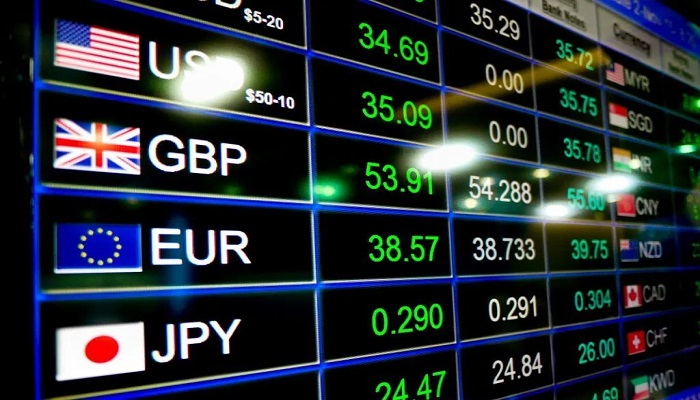Cryptocurrency has become a significant part of the global financial system, and Bitcoin stands at the forefront.
Understanding the exchange rate between Bitcoin (BTC) and the Nigerian Naira (NGN) is crucial for anyone involved in crypto trading, investment, or using Bitcoin for transactions.
Bitcoin has finally become the most effective crypto exchange over the years.
Unlike the popular fiat money, Bitcoin is a cryptocurrency, a type of digital money that has existed since 2009.
It is actually the first cryptocurrency, aside from Bitcoin; other crypto are known as altcoins.
As of 2010, the exchange rate of 1 Bitcoin to the USD is $0.30 (30 cents), ever since then, there has been a relative in the value of Bitcoin, and this has relatively affected the Bitcoin exchange rate with the Naira and other currencies.
Bitcoin to Naira Exchange Rate
Bitcoin to Naira official exchange rate
The official exchange rate for Bitcoin to Naira is calculated based on the Central Bank of Nigeria’s exchange rate with the United States dollar.
Most bitcoin exchangers that allow naira make use of the official rate.
They simply multiply the USD value of the BTC by the Nigerian bank rate, but currently, most banks in Nigeria do not transact or exchange Bitcoin, this is because of the Central Bank of Nigeria’s policy on cryptocurrency.
- 1 BTC = ₦142 million
Bitcoin to Naira black market rate
For most who trade bitcoin in the black market, they purchase the bitcoin at the USD value, which ranges between ₦1450 and ₦1750, depending on the vendor.
Calculating the current black market rate.
- 1 BTC = ₦142.6 million
As we all know bitcoin is totally decentralized, so there may not be a fixed price for it.
Aside from the fact that BTC is highly volatile, most vendors fixed their Bitcoin exchange rate based on demand and supply.
This is to say that when demand for BTC is high, it will lead to scarcity, which will also increase the price.
Information about Bitcoin
Bitcoin is a cryptocurrency (digital currency) that operates totally free from any central control of banks, governments, or government agencies.
Bitcoin relies on peer-to-peer software,which is secured by cryptographic technology.
There is a public ledger that records all Bitcoin transactions, and copies of it are on servers all around the world.
Every transaction on this network is publicly broadcast and shared from one node to another.
Every few minutes, transactions are collected together by miners into a group, which is called a block, and this will be added permanently to the blockchain.
The blockchain is more like Bitcoin’s account book.
- Bitcoin was launched in the year 2009, Bitcoin is the world’s first and largest cryptocurrency, calculated by market capitalization.
- Unlike fiat money, Bitcoin is created, traded, distributed, and stored by a decentralized system known as a blockchain.
- Both blockchain and Bitcoin are secured by proof-of-work consensus, which is also the process that introduces new Bitcoins into the whole network.
- Bitcoin can be traded via several cryptocurrency exchanges.
- As the first decentralized digital money that was able to meet widespread popularity and success, Bitcoin has been a motivation for lots of other cryptocurrencies.
Factors Influencing Bitcoin to Naira Exchange Rate
Market Demand and Supply: The value of Bitcoin is primarily driven by market demand and supply. High demand with limited supply pushes the price up, while low demand with high supply pushes it down.
Global Economic Events: Global economic events, such as financial crises, geopolitical tensions, and technological advancements, can impact Bitcoin’s value.
Government Regulations: Regulatory actions by governments around the world, including Nigeria, can influence Bitcoin’s price. Positive regulations can boost confidence and increase value, while restrictive regulations can cause declines.
How Bitcoin Exchanges Work
Online Bitcoin Exchanges: Online exchanges like Binance, Luno, and Quidax allow users to buy, sell, and trade Bitcoin for Naira and other cryptocurrencies. These platforms provide a marketplace for buyers and sellers to transact.
Peer-to-Peer Platforms: Peer-to-peer (P2P) platforms like LocalBitcoins enable direct transactions between users. These platforms provide more privacy and often lower fees compared to traditional exchanges.
Buying Bitcoin in Nigeria
Popular Exchanges: Some popular exchanges in Nigeria include Binance, Luno, Quidax, and Paxful. Each offers different features, fees, and user experiences.
Step-by-Step Buying Process
- Choose a reliable exchange.
- Create an account and verify your identity.
- Deposit funds into your account.
- Place an order to buy Bitcoin.
- Transfer Bitcoin to your wallet for security.
Selling Bitcoin in Nigeria
Methods to Sell Bitcoin: You can sell Bitcoin on exchanges, P2P platforms, or directly to individuals. Each method has its own benefits and drawbacks.
Step-by-Step Selling Process
- Choose your selling platform.
- Transfer Bitcoin to the platform’s wallet.
- Place a sell order.
- Confirm the transaction and withdraw funds to your bank account.
RELATED ARTICLES


